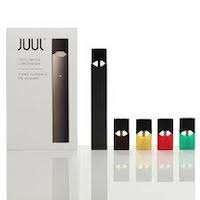
Lawsuits against the company, however, have been stacking up. And parents across the country continue to await their chance to hold the company responsible for their children’s nicotine addiction.
One such family in Lehigh County, Pennsylvania is suing the vape maker and alleges their 13-year-old child became addicted to nicotine while using Juul vapes. They claim that the company created a product that was designed to be addictive and marketed that product to an especially susceptible target audience. The lawsuit says that students at the boy’s school “use Juul on the campus, in bathrooms, outside school, and even in class.”
Nearby, in Philadelphia, city officials are working on a bill to shift the burden of vape regulation to retail stores by prohibiting them from allowing anyone under legal vaping age through the door if they sell vaping products. While vape shops already self-enforce such a restriction, the city’s move also covers convenience stores like Wawa and 7-Eleven. Stores that sell candy, ice cream, groceries, soda, and other convenience items, along with vapes and vaping materials, would have to limit their inventory to low-nicotine liquids with no flavor in order to continue allowing minor customers to shop there.
Nationally, the Trump administration surprised advocates on both sides of the vaping debate by backing off of an announced federal ban on flavored vape products just hours before the president was supposed to sign it into law. Citing political and economic ramifications to the move, including significant job losses, Trump made the decision while on a flight to a Lexington, Kentucky campaign rally. According to a senior administration official who spoke with The Washington Post only after being assured of anonymity, the president “didn’t know much about the issue and was just doing it for Melania and Ivanka.”
